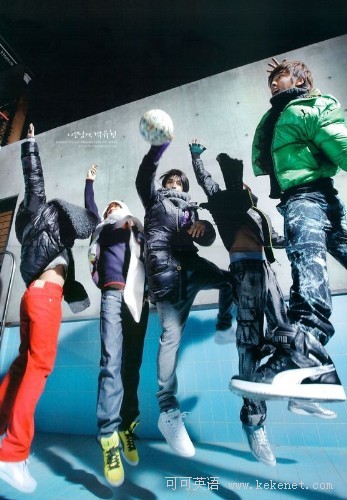(单词翻译:单击)

In Western culture, 21 was the age at which young people traditionally received a key to their parents’ door, as a symbol of entering adulthood.
在西方传统文化中,年轻人到了21岁便可获得进入父母房间的钥匙,象征着他们开始进入成人世界。
Now, the age of 21 is a time when people ask themselves: where do I go from here?
如今,很多步入21岁的人都会自问:“我要去向哪里?”
Jiang Fangzhou’s 21 years have been filled with the kind of success most young people wouldn’t dare hope for in a lifetime. She published her first book at the age of nine and has written many more since then.
蒋方舟21年的成长历程里取得的成功,是大多数年轻人一辈子都不敢奢求的。9岁时便出版自己的处女作,此后又发表了大量作品。
She is regarded as a spokesperson for her generation. However, her hopes and concerns for the future appear decidedly normal.
蒋方舟被认为是同龄人的代言人。而她对未来流露出的希望和担心,也与一般人并无二致。
Not that Jiang herself sees it that way. The pressures that she feels as a 21-year-old are fairly abstract, while the worries of her peers are more to do with practical issues.
并不单单只有蒋方舟如此忧心忡忡,其他21岁年轻人也有类似的问题,不同点在于,她面临一种无形的压力,而她的同辈们担心的是一些现实问题。
She explains that while her fellow students are chiefly concerned with getting a job or buying an apartment, she frets over how she can excel in her work despite having little experience of the world.
她解释道,身边的同伴们都关心求职和买房问题,而她所烦恼的则是,如何在社会经验有限的基础上,在写作之路上再创佳绩。
“Over the past 10 years what I lacked was not skills, but the ability to perceive society,” says Jiang. “Having lived in China for so long, I’m worried many of my values are not objective anymore. They might have been *assimilated, or compromised, by my surroundings.”
“在过去10年里,我缺乏的不是技能,而是洞悉社会的能力,”蒋方舟说,“在中国生活了这么长时间,我担心自己的许多价值观受周围事物同化或影响,不再像原来那样客观。”
However, Jiang, now a senior at the School of Journalism and Communication of Tsinghua University, notes that her peers face intense pressure and competition at school. They are expected to excel in their field of study despite limited experience, just as Jiang is expected to shine in the literary world.
蒋方舟现在是清华大学新闻与传播学院大四年级的学生,她表示,在学校,同学们承受巨大的压力,面临激烈的竞争,正如蒋方舟希望在文学界再有所建树一样,他们也期待着在经验缺乏的前提下,在学业上取得突破。
Although Jiang believes this level of pressure means young people in China have never “*reveled, been *hippies or lived a bohemian lifestyle”, she notes that young Chinese live in an exciting time; in an era in which social transformation is occurring and in which “possibilities arise and roll on with full force”.
蒋方舟认为,虽然这种压力意味着中国的年轻人无法过着狂欢寻乐、我行我素或者放荡不羁的生活。但他们生活在一个激动人心和社会变革的时代,任何机会的出现都有可能改变命运。

Young people, she says, have been forced to open their eyes to the world around them. Jiang’s world has opened up, too. She’s more at ease with herself at 21, compared with when she began college.
蒋方舟说,年轻人不得不放眼周围的世界,她本人亦是如此。相比刚踏入校园时,如今21岁的她感觉更游刃有余了。
“My horizon has broadened and I’m more tolerant,” she says. “As a freshman, I was desperate. I stopped people around me and asked: ‘Is there anything in the world still worth hoping for?’ But now I don’t do that.”
“我的视野变得开阔了,更加包容了,”她说,“大一时,我很绝望。我试着与世隔绝,并问自己‘世上还有什么仍值得我期望的?’但现在我不会那样了。”
Jiang says that she may not pursue writing as her main future career because she wants to try “other lifestyles” – overseas travel and study touring sound particularly inviting to her. But she is concerned that many foreigners have skewed perceptions about China.
蒋方舟说她也许不会把写作作为未来发展的主要职业,因为她想尝试“其他生活方式”——出国游学对她的吸引力非常大。但她也担心许多外国人对中国有偏见。
“A few days ago I overheard a conversation between two foreigners sitting next to me on a flight,” says Jiang. “They were having a heated discussion about the number of beggars in China. And how Chinese always go for ‘petty profits’. In fact, they had been in China for only a week.”
“几天前,我在飞机上听到身边两个外国人的对话,”蒋方舟说,“他们热火朝天地谈论着中国乞丐的数量以及中国人如何占“小便宜”。但实际上他们只在中国待了一周的时间。”
Jiang believes prejudice is inevitable, but she also maintains that Chinese and Westerners, for example, share much common ground.
蒋方舟相信偏见是不可避免的,但她认为中国人与西方人也有许多共同点。
“We share the same principles, such as integrity and a willingness to help others,” says Jiang. “The differences between peoples are not that huge.”
“我们有同样的处事原则,比如诚恳正直和乐于助人,”蒋方舟说,“其实民族间的差异并不是那么大。”


